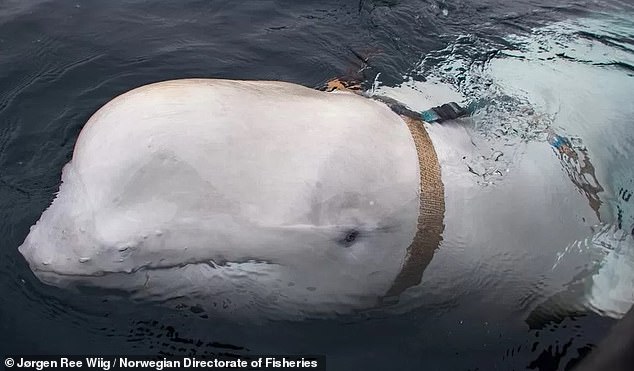A white beluga whale suspected of being a Russian spy that was found dead off the coast of Norway may have been guarding Kremlin property, a new documentary claims.
Nicknamed Hvaldimir (combining the Norwegian word for whale, hval, and Vladimir Putin’s given name), the whale’s body was found floating in Risavika Bay in southern Norway in September.
The 14-foot whale was first spotted by fishermen near the northern island of Ingoya in April 2019 wearing a harness and what appeared to be a mount for a small camera and a buckle marked with the text: “Team St. Petersburg “.
That sparked accusations that the beluga was a “spy whale”, but answers to the mystery of its true identity and covert missions may have been uncovered in a new BBC documentary, Secrets of the Spy Whale.
After 10 months of investigations into the secret underwater agent, the documentary makers found evidence suggesting he may have been trained as a covert “guardian whale” rather than being sent to sea to carry out maritime espionage.
The harness and camera mount sparked accusations that the beluga was “a spy whale.” It has now been revealed that the beluga was probably protecting something.
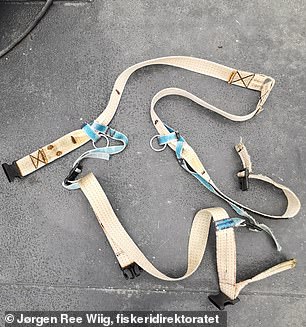
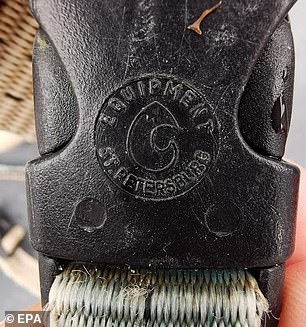
When Hvaldimir was found, he was wearing a harness and what appeared to be a mount for a small camera and a buckle marked with the text: “Team St. Petersburg.”
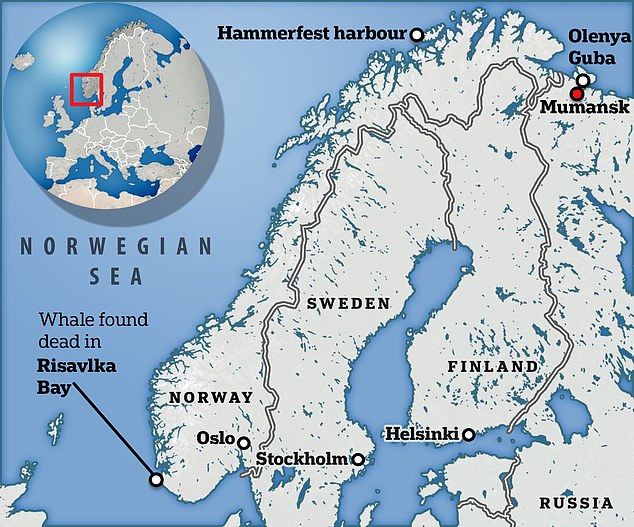
Nicknamed Hvaldimir (combining the Norwegian word for whale and Vladimir Putin), the whale’s body was found floating in Risavika Bay in southern Norway in September.
“Our latest findings about the potential role Hvaldimir had been trained for bring us closer to solving the mystery, but also raise many additional questions about what Russia might be trying to protect in the Arctic, and why,” said Jennifer Shaw, director. of the film told The Observer.
As Shaw and his team investigated the mystery, they met with one of the last remaining veterans of one of the US Navy’s first programs and a former dolphin trainer, who explained the advantages of using such creatures as guards.
Blair Irvine told the newspaper that the bubbles are created from the movements of swimmers, which in turn create noise.
Because dolphins’ hearing is so sensitive, it was a foolproof method of catching intruders, and the Soviet Union quickly launched its own program using similar techniques.
A phalanx of dolphins were supposedly used to protect the Black Sea Fleet in Crimea, and while in floating cages, they were trained to give a signal if any underwater intruders approached.
Shaw also revealed to the newspaper that it was clear that Hvaldimir was trained in a similar manner, as he had seen him putting his nose on anything that appeared to be a target.
This suggested to him that the beluga had shown signs of having been recruited as part of a security patrol, rather than as a spy.
Hvaldimir was found dead on September 1, and at the time of his death, animal rights groups claimed he had been shot.
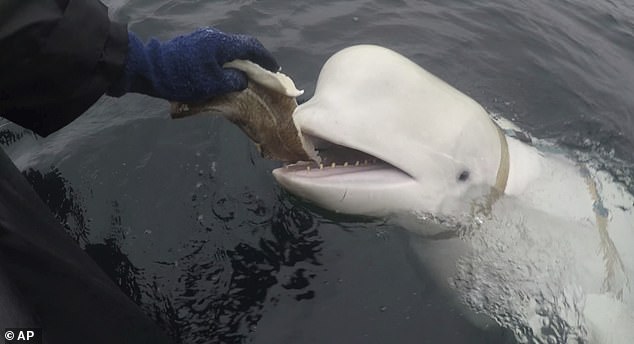
Hvaldimir, a white beluga whale that was first spotted near Russian waters in a harness and sparked rumors that it could be a spy for Moscow, was found dead in September.
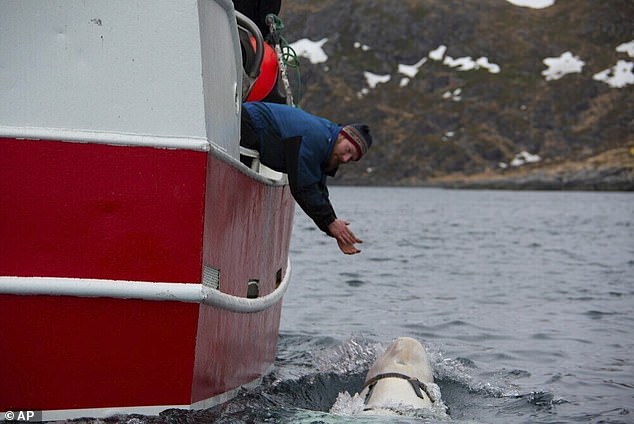
The 14-foot whale was first spotted by fishermen near the northern island of Ingoya, not far from the Arctic town of Hammerfest, in April 2019.
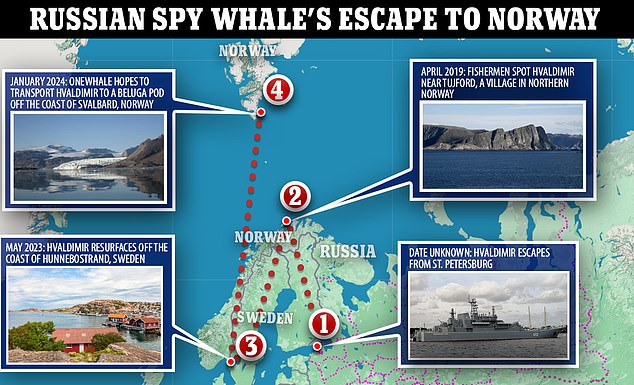
But a forensic examination conducted just a week later concluded that human activity did not directly cause the death of the animal, which died after a stick was stuck in its mouth.
An autopsy showed that the 35cm long and 3cm wide stick was stuck in the animal’s mouth, and police said Hvaldimir had also suffered some “completely superficial” injuries, adding that “there was no evidence to suggest that Hvaldimir was shot.”
“There is nothing in the investigations that have been carried out that establishes that it was human activity that directly led to Hvaldimir’s death,” police said.
Over the years, the beluga was seen in several coastal towns in Norway and it quickly became clear that it was very docile and enjoyed playing with people, NRK said at the time of its death.
Marine Mind said on its site that Hvaldimir was very interested in people and responded to hand signals.
“Based on these observations, it appeared that Hvaldimir arrived in Norway by crossing from Russian waters, where he was presumed to have been in captivity,” he said.

